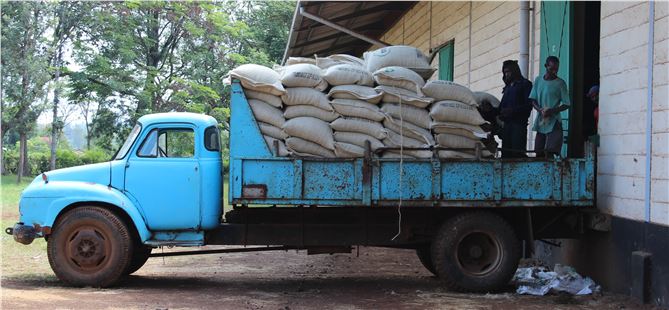Organic Coffee - Frass and Furphy's Part 1

We get quite a few enquiries about how organic certification works, especially regarding importing coffee and quarantine requirements.
We get quite a few enquiries about how organic certification works, especially regarding importing coffee and quarantine requirements.
It requires a lot of work for us to maintain an organic certification. According to the head of the Bennetts quality department, Georgia Major who works extremely closely with the ACO (Australian Certified Organic) to complete fairly rigorous annual audits, “We value the effort producers have put in to produce organic coffee and we will always do our best to maintain the organic integrity of their product.”

So, for everyone in the coffee supply chain who spend time and money on their organic certification, here is a brief rundown of how we work with AQIS (Australian Quarantine and Inspection Service) and the ACO to supply certified organic coffee to the Australian market.
When any container of coffee or tea enters Australia, AQIS (Australian Quarantine and Inspection Service) have the right to inspect it. If they find evidence of coffee bean borer (Hypthenemus hampei), i.e. holes and frass, then a small subset of the beans will be dissected to check for the presence of larvae. If larvae are detected then the beans can be fumigated but in order to retain organic certification we have the option of putting the affected coffee into cold storage.
I have been told (erroneously) a number of times that “the only truly organic
coffee is Australian grown coffee”. The “reasoning” behind this furphy is that
“all coffee is fumigated upon entry to Australia” so, according to this theory,
no coffee that is imported is truly organic

However, according to the Department of Agriculture and Water Resources “There is no requirement for coffee to be sprayed with chemicals upon arrival to Australia. There will only be treatments involved if there are biosecurity risk material present in the coffee (insects, plant debris, etc.).” In summary, coffee does not require fumigation on entry to Australia. Furthermore, if an organic shipment comes in with a potential bio-security risk we have three options.
- We can shut the container doors and send it back to origin
- We can have it put in cold storage for 7 days at -18oC, maintaining organic certification
- We can have it treated in accordance with AQIS regulations and sell as non-organic
In any case, organic certifications are sacrosanct and we would not be allowed (or want) to sell something as being organic if it was treated with a potentially dangerous fumigant.
By Michael Brennan


